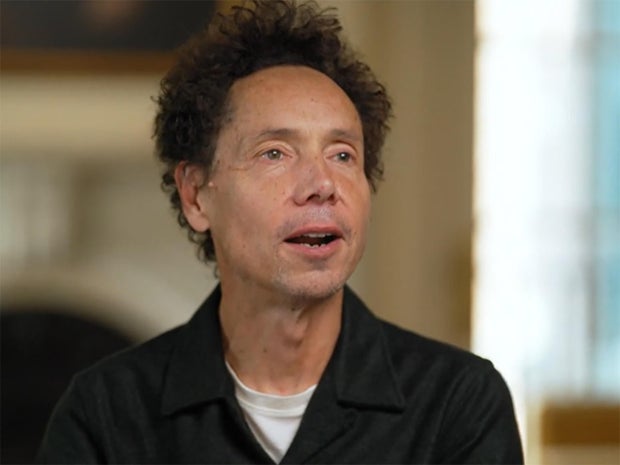CBS News
John Mayer opens up about his mission that extends beyond music: helping veterans with PTSD

Music icon John Mayer, renowned for his soulful melodies and captivating guitar riffs, is on a mission that’s about more than his music. When he’s not making music, he’s focused on the mental health of veterans.
For over a decade, the seven-time Grammy winner has been quietly pursuing research into veterans’ mental health issues. Several years ago, in 2019, he launched the non-profit Heart and Armor Foundation with $3 million of his own money, funding studies that look at issues like the effect of trauma on women warriors, and the biology of PTSD.
“That’s a burden that I think we can help lift off of people,” Mayer said. “Someone saying that the smell of diesel fuel at the gas station triggers a very anxious response because it’s a sense memory from Iraq or Afghanistan. And that got me deeper and deeper into wanting to understand it.”
Money raised since then — including half a million dollars from a recent intimate show with Ed Sheeran — has helped publish 25 peer-reviewed studies.
Mayer’s connection with veterans began in 2008 with a visit to Marine Corps base Camp Lejeune and came after years of success that left him wondering what else he could do for the world. The stories he heard — and the veterans he met — pushed his desire to make a difference.
“It was not set up as a celebrity visit. So, they didn’t know I was coming, but it was the most natural way to meet these veterans, and just immediately start talking and hearing their stories,” he said. “The humanness of it is what struck me.”
Heart and Armor’s work includes community outreach and supporting veterans like former Army Sgt. Aundray Rogers, who witnessed unthinkable horrors in Iraq in 2003. Once home, he couldn’t cope and said he struggled with alcoholism, substance abuse and suicidal thoughts. He said he never thought he was suffering from PTSD.
“After seeing just a lot of bodies, you know, people on fire, cars burning with people in them, in buses. A small-town boy from Mississippi, I wouldn’t have never thought I’d see something like this,” said Rogers.
With the help of Heart and Armor, Rogers has moved from being homeless to healing. He is now a volunteer helping others.
“It means so much, that insurmountable support that they give me to serve. You know, service is my medicine,” said Rogers.
The essence of Heart and Armor is perhaps best seen when Mayer meets with the organization’s volunteers, like former Marine Spencer McGuire. McGuire said Mayer’s album “Continuum,” particularly the songs “Waiting for the World to Change” and “Gravity,” provided comfort during his service in Afghanistan, where he faced constant mortar fire and developed PTSD.
Specific lyrics from “Gravity” — “keep me where the light is” — resonated so deeply with McGuire that he got them tattooed on his arm.
“My mom always kind of spoke to me about how it’s really important to stay within the light. You got to fight for it, sometimes the darkness can be overwhelming, but you know, if you persevere, then you can get there,” said McGuire.
At 46, Mayer’s definition of success has evolved. He said it’s no longer about album sales or fame.
“It’s just down to touching people with music, getting people through tough nights with your music,” Mayer said. “From this point until my last breath, we do this as a calling.”
CBS News
Malcolm Gladwell on “Revenge of the Tipping Point”

Watch CBS News
Be the first to know
Get browser notifications for breaking news, live events, and exclusive reporting.
CBS News
Malcolm Gladwell’s life has changed; he has not

On Tuesday, a new Malcolm Gladwell book comes out. And if history is any guide, it will be a bestseller. “They’re stories about ideas,” he said. “They have characters. They have plots. I’m usually trying to say something about the world.”
His first book, “The Tipping Point,” published in 2000, established the Gladwell recipe: he explores a theme through anecdotes and little-known scientific studies. “‘Tipping Point’ was about the epidemic as an incredibly useful way of understanding how ideas move through society,” Gladwell said. “And epidemics have rules. Let’s learn the rules, right?”
His seven New York Times bestsellers have sold 23 million copies in North America alone. His fee for corporate speeches is $350,000. His fans have downloaded a quarter-billion episodes of his podcast, “Revisionist History,” and he founded a company called Pushkin Industries to produce it.
CBS News
In other words, Gladwell has come a long way from the small Canadian town where he grew up, son of a British father and a Jamaican mother, whom he describes as “subversive,” someone who would write notes to excuse her son from class with a blank space. “I would just fill out the date,” said the man who skipped a lot of school.
He attended the University of Toronto, but his best education was the ten years he worked for the Washington Post. “I knew nothing about newspapers,” he said. “I was so raw. I was 23, I think, or 24. Bob Woodward was two rows away from me. I learned at the feet of the greatest journalists of my generation.”
In 1996, Gladwell joined The New Yorker. He wrote about why, in the 1990s, New York’s crime rate plummeted in an article called, “The Tipping Point.” A book followed. It introduced a recurring Gladwellian theme: hidden patterns in the way the world works.
He’s a world-class contrarian, about college (“You should never go to the best institution you get into, never; go to your second or your third choice. Go to the place where you’re guaranteed to be in the top part of your class”); about working from home (“It’s not in your best interest to work at home. … If you’re just sitting in your pajamas in your bedroom, is that the work life you want to live, right? Don’t you want to feel part of something?”); about football (“I think the sport is a moral abomination”).
Gladwell says he enjoys being provocative: “Of course!” he said. “I like poking the bear. I mean, journalists should poke the bear.”
CBS News
Gladwell’s fans love his storytelling, and the A-ha! moments they bring. His critics, on the other hand, have described his writing as “generalizations that are banal, obtuse, or flat wrong,” and “simple, vacuous truths [dressed] up with flowery language.” “I’m with the idea that not everyone’s gonna like my work,” Gladwell said. “100% of people don’t like anything.”
In a 2021 “Sunday Morning” interview, Gladwell said, “I would rather be interesting than correct.” He called that “an overly provocative way of saying things! No, I think what I meant was, if I turn out not to be right, I’m not devastated. I accept that as the price of doing business.”
Gladwell often turns his mistakes into new chapters or podcast episodes. In “The Tipping Point,” he explained that New York’s crime drop was the result of “broken windows policing.” As he described it, “Little crimes were tipping points for big crimes.” But that philosophy led to New York’s policy of “stop and frisk.”
“Doing 700,000 police stops a year of young Black and Hispanic men is deeply problematic,” Gladwell said. “We were wrong. I was part of that. I’m sorry.”
Which brings us to the new book, “Revenge of the Tipping Point.” “The original ‘Tipping Point’ is a very optimistic, rosy book about the possibilities for using the laws of epidemics to promote positive social change,” he said. “In the last 25 years, I spent a lot of time thinking about the other side of that problem, which is, what happens when people use the laws of epidemics in ways that are malicious or damaging or self-interested?”
Little, Brown & Co.
The book’s stories range from topics as obscure as cheetah reproduction, to stories as big as the Holocaust. He writes that almost nobody talked about the Holocaust, or even called it that, until NBC aired a miniseries called “Holocaust” in 1978. “And what changed happened like [snaps fingers]. I mean, it was just there was a tipping point in our understanding of the Holocaust,” he said.
This book arrives at a tipping point in Gladwell’s own life. In a span of five years, he got engaged, had two children, turned 61, and moved from Manhattan to pastoral Hudson, New York. “It’s a lot to handle. There isn’t a single person who ever lived whose parents did not say, ‘This is a lot!'” he laughed. “I have become the person that, you know, I once despised, and nothing makes me happier.”
He also despises Ivy League colleges, accusing them of prioritizing their own reputations over focusing on their students.
Has parenthood affected his outlook on any of the things that he’s written about before? “Well, it’s prepared me for the possibility that I will be a massive hypocrite!” Gladwell laughed. “So, you know, it’s one thing to write about what you should do with your kids when you don’t have them.”
For all his success, Malcolm Gladwell maintains that nothing has changed in his approach, his work ethic, or his contrarianism. “It hasn’t changed what I do,” he said. “I don’t farm out my research; I still go on reporting trips. It hasn’t gotten old. In fact, my great regret is I don’t have time to do more.”
READ AN EXCERPT: “Revenge of the Tipping Point” by Malcolm Gladwell
For more info:
Story produced by Wonbo Woo. Editor: Remington Korper.
CBS News
Coldplay on their record-breaking world tour

Watch CBS News
Be the first to know
Get browser notifications for breaking news, live events, and exclusive reporting.






